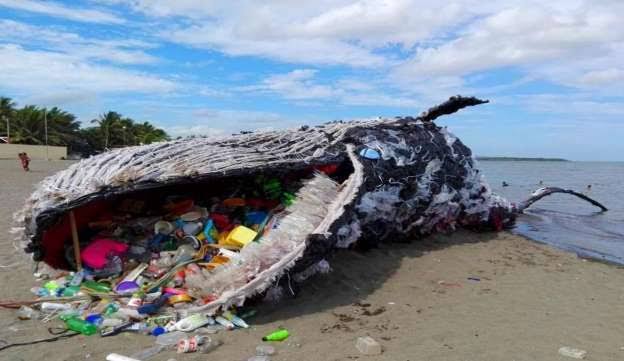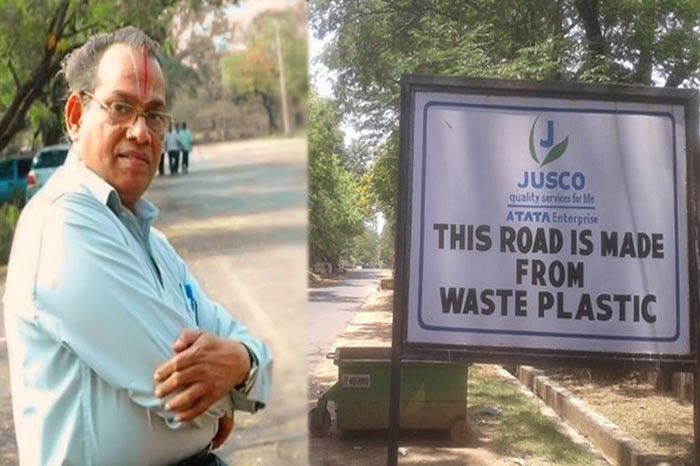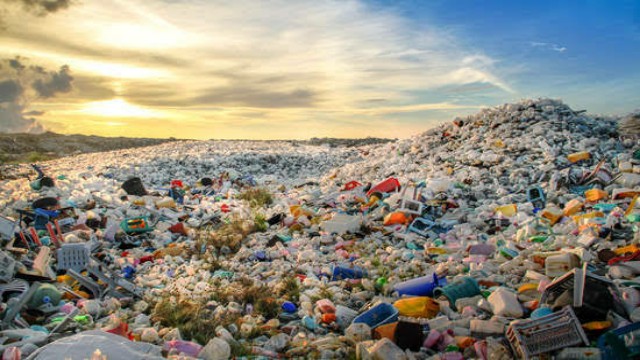Earth is choking under plastic waste; A few people trying to save her
When Plastic was invented, it was the harbinger of change and development. It was expected to bring a revolution in the way the world works. And it has, if one is to be honest. Now plastic is everywhere in our lives. In the food we purchase, the bags that the superstores give us our purchases in, the containers we store our things in at home. Everywhere, plastic has its feet rooted firmly. So it is no miracle that plastic has become the forerunner in even the factors contributing to pollution.
Plastic waste produced
According to research conducted by American scientists in 2017, the total plastic that has been produced since 1950 stands at close to 8.3 billion metric tons. The same research also revealed that approximately 75% of this plastic produced is now a part of waste. The problem? There is no effective means of disposing this waste. The plastic waste in our country mostly just lies in landfills, waiting to be decomposed which takes, literally, forever.
According to statistics by the United Nations, half of the plastic products designed and manufactured are single use and disposable. Which means, they end up in the trash and are not reused or recycled in anyway. By the same statistics, approximately 300 million tonnes is produced in plastic every year.
What happens to the plastic waste?
This plastic lies in landfills and reduces the quality of the soil, reduces water absorption and therefore indirectly affects ground water levels, which is disastrous in a water starved nation like ours. When this plastic isn’t lying in landfills, it lies in drains and rivers from where it is often consumed by innocent animals. These carry it to the oceans. From the oceans, this plastic is consumed by aquatic life. In fact a few months ago, a pilot whale had washed up on the coast of Thailand, choked by 80 pieces of plastic it had consumed.

My point is that plastic has now begun to choke the entire ecosystem, from land to underwater.
So how do we resolve this problem?
A lot of cities around the world have taken up the initiative by banning plastics used in the form of carry bags. Major commercial chains have replaced plastic bags with cloth and paper bags. While these small moves are admirable and show that change can still be made, the bigger problem is of disposing the plastic waste that exists already.
‘Plastic Man’ Prof Rajagopalan Vasudevan
Prof Rajagopalan is a professor for Chemistry at the Thiagarajar College of Enginnering, Madurai. He took to experimenting with waste plastics in the hope of coming up with solution. And he was successful, with two largely successful techniques.

He worked to mix waste plastic after shredding it with heated bitumen. When the two were mixed together, they made for a mixture which was resilient against water damage, used lesser amount of bitumen. And with this mixture, he built roads inside the college campus. The roads that were built back in 2002 continued to remain strong and in use even 15 years later.
The second technique he developed involved a stone block which had a plastic coating on it. Calling it ‘Plastone’ he said each consumes approximately 300 plastic bags and 6 plastic bottles. Since plastone is non-porous and prevents penetration of water, it is a cheap and effective replacement to stone blocks used in flooring and other construction material which have to stand against rain withering.
Plastic bottles reducing construction costs
Anuradha Suryavanshi from the MS University, Vadodara along with her German co-researcher Elisabeth Riederer have come up with a way to use disposed PET water bottles as a cheap construction replacement.
They used additive manufacturing to create a cement based composite from recycled bottles, to be used as a substitute for sand. Her technology reduces the amount of sand used by 13%. This helps by not just recycling plastic but also reducing the construction costs by 10-15%.
The Singapore model
Singapore is a small country, in terms of size. But in terms of progress and innovation, it is amongst the top players in the world. As a small nation, Singapore does not have the space to develop landfills, and so by necessity they are driven to come up with effective waste disposal means. And the way that Singapore disposes its plastic is not just innovative, it is also multi-solution based.
A large number of plastic waste is collected and burnt at an incineration plant. The heat generated from this incineration plant is used to generate electricity. Further, the smoke released from the burning of the plastics is filtered before being released into the environment, making it relatively less polluting.
In another example of plastic waste recycling, the waste from Singapore is collected, processed and used to create plastic pellets that can be used for creating more plastic in Malaysia by companies like Impetus Conceptus and V1 Recycle.
While these two methods have proven to be highly effective for the country until now, recent research has shown that it is still not sufficient. Plastic has now begun to choke even this progressive nation.
Origin Materials
This is an American company that is working to develop plastic bottles that are more environment friendly. Bottles produced now are mostly made from petroleum based sources which are non-renewable. The aim of the company is to be able to manufacture these bottles from materials like cardboards and sawdust which are renewable. Their pilot plant has even managed to produce bottles which are made from 80% renewable sources.
Bioplastech
This is a Dublin based company that is working on what it calls ‘biodegradable bugs’. These are essentially bacterial species which can be used to convert non-biodegradable plastic into a biodegradable polyester by the name of polyhydroxyalkanoate (PHA).
Conclusion
This plastic waste is a much bigger problem than we have given it credit for. While the world continues to ignore the problem of environmental pollution and its catastrophic effects, the nature is already experiencing it. Have a look at the rising temperature and ask the family members of victims of heat wave. Ask the farmers who suffer through crop failure due to natural calamities. More than anything, ask the animals who die every day because they consumed a plastic bag because they didn’t know better.
Humans consider themselves to be superior because of their ability to think and feel. Where is our thinking and where go our emotions at moments like this. If you still think plastic waste isn’t that big a problem, I’ll sign off with one final fact: The Ellen MacArthur Foundation has found in its research that by the year 2050, the weight of plastic in the oceans will be more than the weight of the fish in it.

